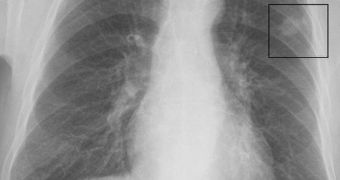Treating cancer as early as possible after the disease started evolving is only one aspect of curing a patient. Oncologists need to be able to stop the action of a drug at a moment's notice, so that side-effects do not develop at all, or only develop to an insignificant extent. The drugs and their delivery systems must also be target-specific, in that they cannot harm healthy cells around the tumors, like chemotherapy and radiotherapy do. Experts at the University of Illinois at Urbana-Champaign (UI) now believe they may have developed a system that meets all these conditions, and more.
According to a scientific paper appearing in the latest International Edition of the respected scientific journal Angewandte Chemie, their new cancer-drug delivery system is able to transport active molecules to the tumors, release them, and then seize its action, if that is desirable. Their work has thus far been tested only in the laboratory, using cell culture, but hopes are high that the method will prove beneficial to actual patients as well, PhysOrg reports.
The team used liposomes for their studies. The small compartments, which are bound by membranes, were known to be efficient molecule transport systems. When they are outfitted with chemicals that can target tumor cells directly, they are able to bind to the cancerous cells immediately, penetrate them, and then release their contents inside. The targeting system, experts report, was constructed out of aptamers, tiny strands of RNA and DNA that are easy to handle, control and manipulate, and also easy to track within the body and cells.
In their experiments on cell cultures, the UI team used an aptamer that bound specifically to nucleolin receptors. These chemicals are found in abundance on breast-cancer cells. The liposomes were laden with a drug known as cisplatin, which has shown an amazing ability to destroy breast-cancer cells, but that has massive side-effects when injected in patients' veins. After four days of administering the treatment, 60 percent of breast-cancer cells died due to the new system, whereas only 12 percent were annihilated by cisplatin injected by itself.
“By labeling a liposome that contains cisplatin with a cancer cell-specific aptamer, we have shown delivery of the drugs to cancer cells without significant damage to regular cells, making it possible to maximize the drug potency while minimizing its side effects,” faculty member Li Yu, PhD, one of the leaders of the new research, explains.

 14 DAY TRIAL //
14 DAY TRIAL //